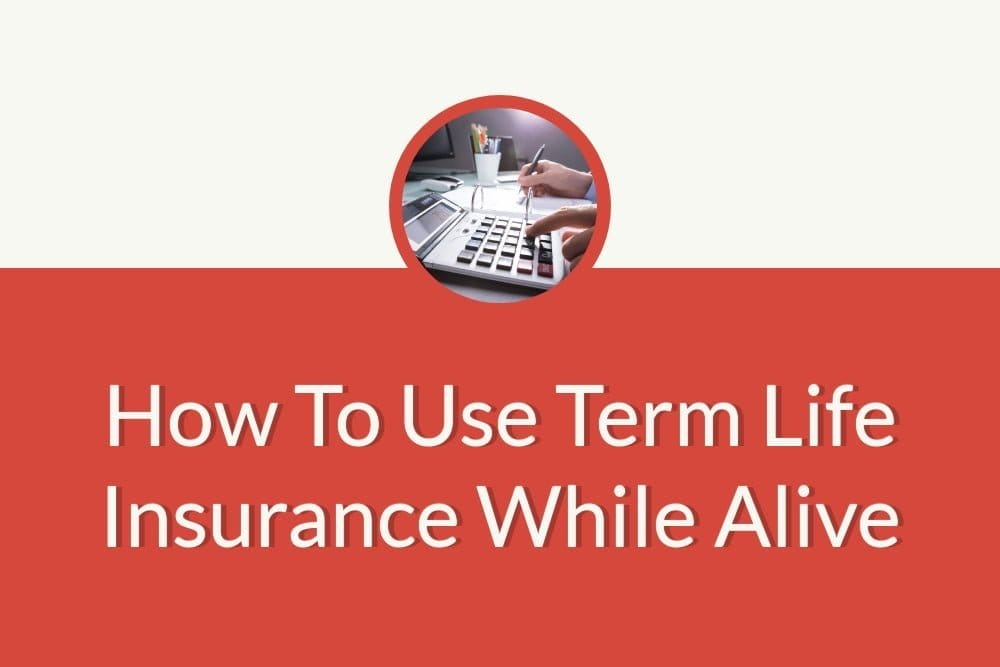How To Use Term Life Insurance While Alive

Rikin is the Founder & CEO of GetSure. He is a licensed life, accident & health insurance agent in all 50 states (plus D.C.) and has over 15 years of experience in the financial services industry. He has been featured in publications such as Forbes, USA Today, and U.S. News & World Report, among others. Rikin holds a B.S. in Applied Mathematics from Columbia University and an MBA from The Stanford Graduate School of Business.
If you'd like to speak with Rikin to discuss your life insurance options or questions, don't hesitate to email him at hello [at] getsure.org.
Joseph RR Templin, MCEC, CEC, CLU, ChFC, CAP has served as a member of NAIFA (the National Association of Insurance and Financial Advisors) on the local, state, and national level, and including three terms on the NAIFA National Young Advisors Team (YAT) Subcommittee and was honored as one of the 2011 Advisor Today 40 Under 40. He is a graduate of the Leadership in Life Institute of NAIFA as well as Rensselaer Polytechnic Institute, and is an alum of Johns Hopkins University.
APA: Shah, Rikin. April 6, 2023 . How To Use Term Life Insurance While Alive. GetSure. Retrieved April 24, 2024, from https://getsure.org/how-to-use-term-life-insurance-while-alive/
MLA: Shah, Rikin. "How To Use Term Life Insurance While Alive." GetSure, https://getsure.org/how-to-use-term-life-insurance-while-alive/. Accessed April 24, 2024.
Chicago: Shah, Rikin. "How To Use Term Life Insurance While Alive." GetSure. Accessed April 24, 2024. https://getsure.org/how-to-use-term-life-insurance-while-alive/
Related Posts

Discover the average funeral cost in Arkansas and learn tips for keeping expenses down. Don't...
Explore the intricacies of life insurance in Delaware, its laws, leading causes of death, and...
We Value Your Feedback
We'd love to hear your thoughts. Were you able to find the information you were looking for on GetSure.org?
Do you have specific feedback you'd like to share or questions we can answer?
Thank You
If you requested a reply, we'll be in touch shortly.

